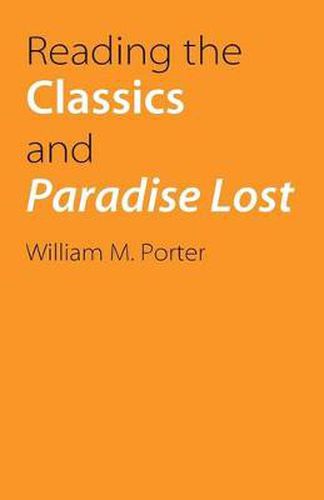Readings Newsletter
Become a Readings Member to make your shopping experience even easier.
Sign in or sign up for free!
You’re not far away from qualifying for FREE standard shipping within Australia
You’ve qualified for FREE standard shipping within Australia
The cart is loading…






Milton’s early commentators-Henry Todd, Thomas Newton, Joseph Addison, and others-not only knew their classics well, they took them seriously as models of literary excellence and repositories of values. In the twentieth century, however, the classics have become mere background. As a consequence, William M. Porter argues, not only is the foundational dimension of Milton’s poetry now hardly visible, even to scholars, but the potential of Milton’s poetry to revitalize the reading of the classics has been diminished.
In this insightful study, Porter attempts once again to read both the classics and Milton’s epic poem sensitively and intelligently. He exposes the recklessly speculative and tendentious character of much earlier work on Milton’s allusions, in which allusions were promiscuously posited and in which Paradise Lost was too often regarded naively as triumphing over the classics. Porter demonstrates that Milton’s allusions, in which allusions to the classics, while fewer than has been supposed, are rich with wit, irony, and thought that can be grasped only by a reader with a double perspective.
$9.00 standard shipping within Australia
FREE standard shipping within Australia for orders over $100.00
Express & International shipping calculated at checkout
Milton’s early commentators-Henry Todd, Thomas Newton, Joseph Addison, and others-not only knew their classics well, they took them seriously as models of literary excellence and repositories of values. In the twentieth century, however, the classics have become mere background. As a consequence, William M. Porter argues, not only is the foundational dimension of Milton’s poetry now hardly visible, even to scholars, but the potential of Milton’s poetry to revitalize the reading of the classics has been diminished.
In this insightful study, Porter attempts once again to read both the classics and Milton’s epic poem sensitively and intelligently. He exposes the recklessly speculative and tendentious character of much earlier work on Milton’s allusions, in which allusions were promiscuously posited and in which Paradise Lost was too often regarded naively as triumphing over the classics. Porter demonstrates that Milton’s allusions, in which allusions to the classics, while fewer than has been supposed, are rich with wit, irony, and thought that can be grasped only by a reader with a double perspective.